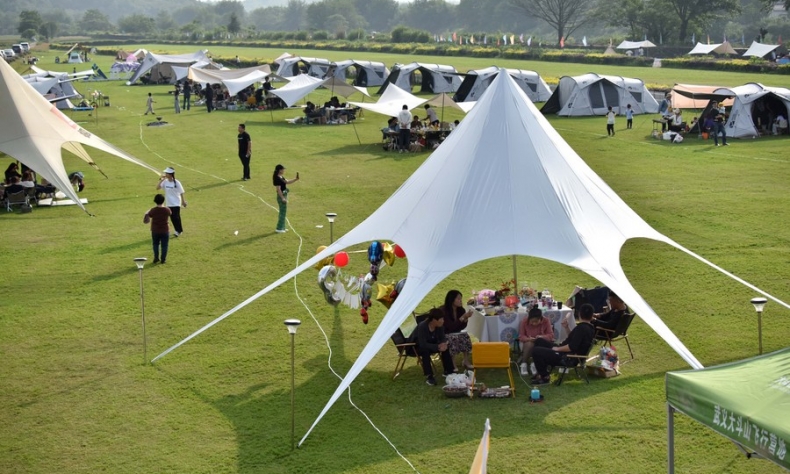Camping: A New Economic Booster

The rise of the camping economy reflects changes not only in consumption trends, but also in people’s lifestyles.
Camping is becoming a new weekend lifestyle for many Chinese people, stimulating rapid growth along the entire outdoor equipment industry chain. In April, searches related to camping on Meituan, a leading Chinese product delivery and local service provider, soared more than 140 percent month on month. E-commerce giant JD.com announced the sales volume of camping lights increased 48 percent in April year on year, while sales of tents, camping tables and chairs surged 70 percent and 74 percent, respectively. Increased sales of this camping gear not only brings revenue to businesses, but also promotes technological innovation. For instance, many brands have introduced modular tents and lightweight cookware of better quality.
In 2024, the revenue of China’s camping economy reached 213.97 billion yuan ($30 billion), and this figure is expected to grow significantly in 2025. The boom of the camping economy has been underpinned by profound changes in consumer demand, economic development and social psychology. The growing popularity of camping is part of a broader shift from material consumption to the consumption of experiences. Trends in camping are also reflecting the pursuit of increased quality in consumer behavior, with glamping (or luxury camping) being a prominent example thereof. In the past, camping just meant simply setting up a tent and using a sleeping bag. Now, however, modular tents, lightweight cookware, and even projectors and audio devices are making a night under the stars much more luxurious.

The blossoming camping economy is attracting much investor attention. Dedicated campsites have been established in many places, such as recreational vehicle campsites, family campsites and picnic campsites. The influx of capital not only promotes expansion of the industry, but also accelerates market competition and innovation. For example, some campsite operators have offered one-stop service packages that include camping pods, camp spaces and all-day free outdoor activities. In the meantime, the construction of campsites can stimulate the development of surrounding areas. Nearby restaurants, stores and scenic spots see considerable increases in foot traffic, creating a diversified consumption scenario combining camping with dining and entertainment.
Of course, the rapid development of the camping economy is posing severe challenges to the natural environment, and problems such as garbage pollution and vegetation destruction must be addressed. Excessive development may also bring problems. For example, some campsites over-exploit natural resources and even damage the environment in order to attract tourists. Such short-sighted actions may pose threats to the sustainability of the camping economy. To solve these problems, many local governments have issued guidelines to promote green camping practices.
The rise of the camping economy reflects changes not only in consumption trends, but also in people’s lifestyles. But to make this boom a long-term trend, we need to strike a balance between meeting consumer demand and protecting the environment. Only in this way can the camping economy maintain sustainable and sound development and become an important force in advancing social progress.
 Facebook
Facebook
 Twitter
Twitter
 Linkedin
Linkedin
 Google +
Google +










